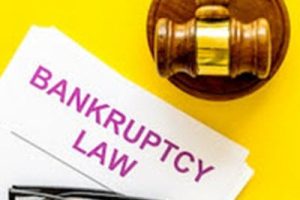What To Expect In A Chapter 7

Most people file liquidation bankruptcies because of high medical bills. These expenses have increased faster than inflation since the Great Recession. Most health insurance companies look for ways to deny these claims. And, even if they pay them, the insurance usually only covers part of the cost. 20 percent of a cancer treatment bill is a lot of money.
“Liquidation” is not a very good nickname for a Chapter 7. Most people get to keep most of their property. Indiana has some of the broadest property exemptions (property protections) in the United States. These exemptions, along with the Automatic Stay and debt discharge, guarantee most debtors a fresh financial start. A Chicago bankruptcy attorney maximizes this fresh start and gives you additional peace of mind.
Filing the Petition and Schedules
In 2005, lawmakers added some eligibility requirements to the Bankruptcy Code. Chapter 7 debtors must complete a debt counseling class before they file and a financial management class after they file.
Additionally, Chapter 7 debtors must pass the means test. Their incomes must be below average. As of November 1, 2020, the average income for an Indiana family of four was $90,654 per year. If you are over that line, you might still qualify, based on your actual expenses. Some other qualifications, most of which are unwritten, may apply as well.
Most Chapter 7s begin with a voluntary petition and supporting schedules. In most cases, no one forces you to file bankruptcy. You may file at any time and withdraw your petition at any time.
Notice of the filing to all creditors is critical to the Automatic Stay. Section 362 of the Bankruptcy Code only stops foreclosure, wage garnishment, repossession, and other adverse actions if the creditor receives actual notice of the filing. This requirement could be an issue. Most banks work with several different debt collection agencies.
Trustee’s Meeting
Shortly after they file, the trustee (person who oversees the bankruptcy for the judge) usually requests copies of identification and financial documents. The trustee reviews these documents to look for signs of identity and bankruptcy fraud. Most people are familiar with identity fraud. Bankruptcy fraud usually involves concealing income or assets.
At a subsequent meeting, the trustee asks a few fraud-related questions. If there are any red flags, an attorney has an opportunity to address them. But in almost all cases, the 341 meeting in a Chapter 7 is an in-and-out affair.
Debt Discharge
Unless there are serious financial or identity fraud issues, trustees normally recommend discharge to the judge. The discharge (forgiveness) option applies to most unsecured debts, such as:
- Medical bills,
- Signature loans,
- Credit cards,
- Revolving charge accounts, and
- Payday loans.
Let’s take a closer look at the discharge option. Just like you can voluntarily file or withdraw your petition, you may also voluntarily reassume unsecured debts. For example, many people want to pay a family doctor’s medical bill or certain other expenses.
Furthermore, as mentioned, some unsecured debts are only dischargeable in some situations. Past-due income taxes and student loans are the two biggest examples.
Connect with Diligent Lawyers
Chapter 7 keeps creditors at bay and results in a fresh start. For a free consultation with an experienced bankruptcy attorney in Chicago, contact the Bentz Holguin Law Firm, LLC. Convenient payment plans are available.
Resource:
cnbc.com/2019/02/11/this-is-the-real-reason-most-americans-file-for-bankruptcy.html


